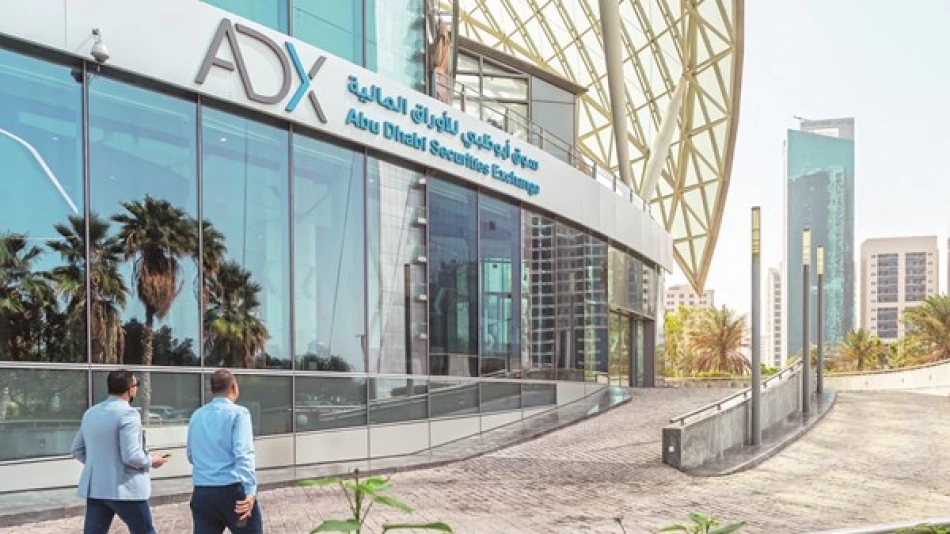
Foreign Investors Inject AED 15.3 Billion into UAE Stocks in August
Foreign Investors Cushion UAE Stock Markets as Profit-Taking Erodes July Gains
Strategic foreign buying helped stabilize UAE equity markets in August, as investors accumulated select stocks while domestic traders locked in profits following July's spectacular 134.5 billion dirham surge. Despite foreign net purchases totaling 1.21 billion dirhams across both Abu Dhabi and Dubai exchanges, markets still declined as profit-taking pressure outweighed international support.
Foreign Capital Flows Signal Confidence Despite Market Correction
International investors demonstrated renewed confidence in UAE equities, purchasing 15.33 billion dirhams worth of shares in August—9.11 billion in Abu Dhabi and 6.22 billion in Dubai. This buying activity resulted in net foreign inflows of 957.28 million dirhams in Abu Dhabi and 257.34 million dirhams in Dubai, suggesting sophisticated investors view the recent correction as a buying opportunity rather than a fundamental shift in market dynamics.
The foreign accumulation pattern mirrors similar strategies seen during market corrections in other Gulf financial centers, where international funds often step in during local profit-taking cycles. Non-Arab foreign investors were particularly active in Abu Dhabi, capturing 30.7% of total trading value while maintaining a net buying position of 859.77 million dirhams.
Institutional vs. Retail Divergence Highlights Market Maturity
A clear divergence emerged between institutional and retail investor behavior, with financial institutions purchasing 21.59 billion dirhams worth of shares across both markets. In Abu Dhabi, institutions recorded net purchases of 197.5 million dirhams, while individual investors showed net selling of equivalent amounts—a pattern consistent with profit-taking behavior after strong gains.
This institutional support suggests that professional money managers view current valuations as attractive, particularly following July's rapid appreciation that may have created short-term overbought conditions.
Market Performance Reflects Healthy Consolidation
Abu Dhabi Securities Exchange
The ADX General Index declined 2.7% to close at 10,094.67 points, down from 10,376.78 points at July's end. Despite the correction, market breadth showed resilience with 41 companies advancing against 60 declining, while 20 remained stable. Total market capitalization fell by 57.48 billion dirhams to 3.107 trillion dirhams, though this remains well above pre-July levels.
Dubai Financial Market
Dubai's main index dropped 1.55% to 6,063.61 points, a more modest decline than Abu Dhabi. Market capitalization decreased by 20.82 billion dirhams to 1.039 trillion dirhams. The relatively smaller correction in Dubai suggests more selective profit-taking, with foreign investors showing particular interest in specific Dubai-listed names.
Strategic Implications for Regional Markets
The August trading patterns reveal a maturing UAE equity market where foreign institutional flows increasingly provide stability during domestic volatility. This dynamic resembles established markets like Singapore or Hong Kong, where international capital serves as a counterbalance to local sentiment swings.
The selective foreign accumulation, combined with institutional buying, suggests that July's gains weren't merely speculative but reflected genuine fundamental improvements in UAE corporate prospects. The current consolidation phase may prove healthy for long-term market development, allowing valuations to stabilize while maintaining international investor interest.
For regional markets, the UAE's ability to attract foreign capital during corrections reinforces its position as the Gulf's premier equity destination, potentially drawing flows away from other regional exchanges that lack similar international appeal.
Most Viewed News

 Layla Al Mansoori
Layla Al Mansoori






